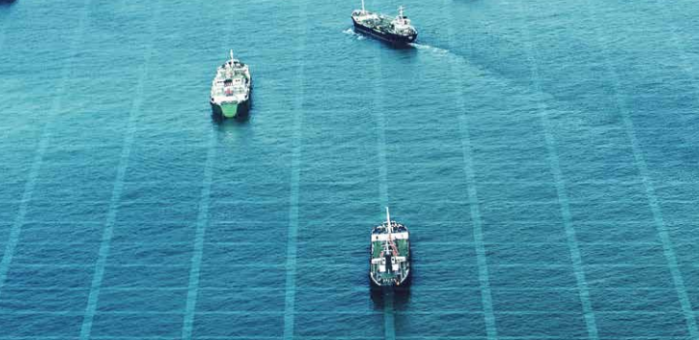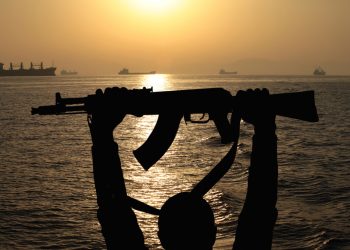After the fall in the volume of pirate attacks at the Gulf of Guinea (GOG), the Nigerian Maritime Administration and Safety Agency (NIMASA) and the International Maritime Bureau (IMB) have expressed disagreement over which institution is responsible for the reduction.
Namely, the IMB attributed the reduction of piracy and other maritime crimes in the area to the presence of foreign Navies in the region, with Director General of NIMASA, Bashir Jamoh, saying that the USD195 million deep blue project initiated by the Federal Ministry of Transportation is responsible for the decline in piracy at Gulf of Guinea.
On the other hand, IMB said that some foreign countries and the European Union have deployed Naval missions to tackle attacks against merchant ships in the GOG. As it said, some of the missions include the United States Africa Command International Maritime Exercise in the Gulf of Guinea, the deployment of a warship by Denmark and the creation of the Coordinated Maritime Presences (CMP) in the Gulf of Guinea by the European Union.
What is more, while commending what he called the robust actions of the international Navies and regional authorities in the Gulf of Guinea, Director of IMB, Michael Howlett, said the effort:
Appears to have positively contributed to the drop in reported incidents and ensuring continued safety to crews and trade
Mr. Howlett also noted that despite the reduction, the Gulf of Guinea continued to account for all kidnapping incidents globally, with 57 crew taken in seven separate incidents in 2021.
IMB further calls on the coastal states of the Gulf of Guinea to increase their collaboration and physical presence in their waters to ensure a long term and sustainable solution to address the crime of piracy and armed robbery in the region
The EU Coordinated Maritime Presence, which was launched in 2021, mandates countries like France, Italy, Portugal and Spain to take turns to deploy warships in the region.






























































